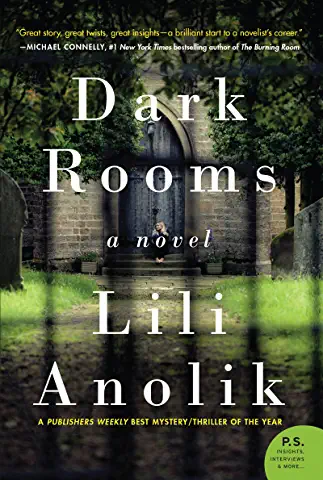Female Transgressive Writers of all time (Part 5)
- Neda Aria

- Apr 15, 2021
- 4 min read

Time to talk about another 5 fantastic authors that I categorize under Transgressive Fiction according to their style and themes, how they use the power of writing to transgress the norms of their society and culture. Today we will talk about Lola Smirnova, Lili Anolik, Fannie Flagg, Pauline Réage, and Ursula K. Le G.

Lola Smirnova
Lola Smirnova is an author from Ukraine. On her Goodreads, she stated that she loves twisting a suspenseful tale through the dark lens of realism around the sexual underworld, so clocked in secrecy and shame. Lola’s work is inspired by real-life events and is meant for open-minded readers who are not afraid of a little blood, sweat, and semen. Her debut novel Twisted was released in 2014. The book was placed as Honorable Mention in General Fiction Category of The 2014 London Book Festival’s Annual Competition and took 3rd place at The Drunken Druids International Book Award 2014.
Although they are often called cabarets, and occasionally there is even strip-dancing involved, you shouldn't associate them with merrymaking or extravaganza...
― Lola Smirnova, Twisted
Lili Anolik
Lili Anolik is a contributing editor at Vanity Fair and a writer at large for Air Mail. Her work has also appeared in Harper's, Esquire, and The Paris Review, among other publications. Her latest book, the Los Angeles Times bestseller, Hollywood's Eve: Eve Babitz and the Secret History of L.A., was published by Scribner in 2019. Her debut novel, Dark Room, combines the verbal dexterity of Marisha Pessl’s Special Topic in Calamity Physics and the haunting atmospherics and hairpin plot twists of Megan Abbott’s Dare Me.
I haven't even stepped all the way inside the front door when the smell hits me: a kind of stale fustiness, a combination of dust and old furniture, of meals cooked and eaten, of frayed carpeting. If sadness has a scent, this is it.
― Lili Anolik, Dark Rooms
Fannie Flagg
Fannie Flagg is an American actress, comedian, and author. She is best known for the 1987 novel Fried Green Tomatoes at the Whistle Stop Cafe, which was adapted into the 1991 motion picture and remained on The New York Times bestseller list for 36 weeks. (source) It was praised by both Harper Lee and Eudora Welty. The novel is told in both past and present tense by the characters Ninny Threadgoode (past) and Evelyn Couch (present) and focuses on the town of Whistle Stop, Alabama, circa the 1920s and 1930s. It is about the unlikely bonds forged between women who seemingly have nothing in common except restlessness. Although it is not explicitly labeled as a lesbian relationship, every resident both knows about and accepts Idgie and Ruth's relationship, making lesbianism a theme in the novel.
You're just a bee charmer, Idgie Threadgoode. That's what you are, a bee charmer.
― Fannie Flagg, Fried Green Tomatoes at the Whistle Stop Cafe
Pauline Réage
(23 September 1907 – 27 April 1998)
Anne Cécile Desclos was a French journalist and novelist who wrote under the pseudonyms Dominique Aury and Pauline Réage and is best known for her erotic novel Histoire d'O (Story of O). Desclos' lover and employer Jean Paulhan had made the remark to her that no woman was capable of writing an erotic novel. To prove him wrong, Desclos wrote a graphic, sadomasochistic novel that was published under the pseudonym Pauline Réage in June 1954. (source) Titled Histoire d'O, with a sympathetic preface by Jean Paulhan which nevertheless did not reveal her identity, it was enormous, though controversial, commercial success. (source) The book caused much speculation as to the identity of the author. Many doubted that it was a woman, let alone the demure, intellectual, and almost prudish persona displayed in Dominique Aury's writings. Many well-known male writers were alternately suspected to be the author, including André Malraux and Henri de Montherlant. In addition, the book's graphic content sparked so much controversy that the following March the government authorities brought obscenity charges against the publisher and its mysterious author that were thrown out of court in 1959.
Keep me rather in this cage, and feed me sparingly, if you dare. Anything that brings me closer to illness and the edge of death makes me more faithful. It is only when you make me suffer that I feel safe and secure.
― Pauline Réage
Ursula K. Le Guin
(October 21, 1929 – January 22, 2018)
Ursula Kroeber Le Guin was an American author best known for her works of speculative fiction, including science-fiction works set in her Hainish universe, and the Earthsea fantasy series. It is easy enough to locate anarchist themes in the science fiction of Ursula K. Le Guin. In her 1974 masterpiece The Dispossessed, Le Guin made two major contributions to the philosophy of postmodern anarchism. She created a fictional anarchist language called Pravic, which underscores the importance of linguistics for any contemporary anarchist project. And she developed an equally radical concept of time, creating the possibility of chronotopic anarchy. The existence of an explicitly anarchist society on the moon of Anarres has led many critics of The Dispossessed to focus only on the traditional anarchist themes of this novel. Yet the truly radical legacy of this novel (and of Le Guin’s other major works from the late 1960s and early 1970s) is that these works transgress the boundaries of conventional anarchist thinking to create new forms of anarchism that are entirely relevant to life in the postmodern condition. Le Guin updates the conventional anarchist project and positions anarchism to move into the third millennium. (source)
When you light a candle, you also cast a shadow.
― Ursula K. Le GuinCheck the links below for more transgressive fiction recommendation.














Comments